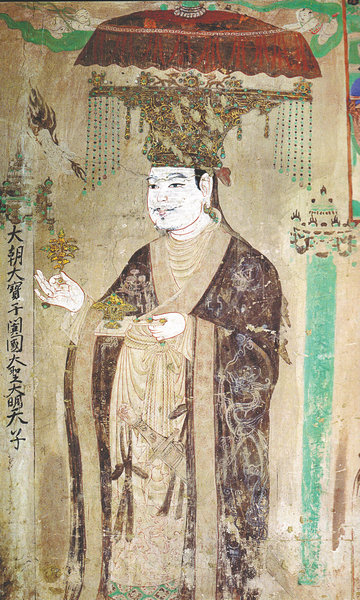A binding force
By ZHAO XU | China Daily | Updated: 2023-05-20 09:14

The path to peace
In the 10th century, Dunhuang fought two major wars with Uygur-controlled Ganzhou (modern-day Zhangye in Gansu province), about 600 kilometers to its east. The first one, which Dunhuang started around 910 and lost the following year, came partly as a direct result of the fall of the Tang Dynasty.
"News traveled fast along the Silk Road. Emboldened by Tang regime's demise and apparently unimpressed by its immediate successor, the short-lived Later Liang Dynasty (907-923), in 910, Zhang Chengfeng, the then governor of Dunhuang, founded his own state 'the Golden Mountain Kingdom of Western Han (Xihan Jinshan Guo)' and declared himself 'son of heaven'," says Wen.
Overridden by his ego, Zhang brought Dunhuang to war with Ganzhou in pursuit of land and glory, only to find the city besieged by his adversary. But to Wen, what was illustrative of the role the ancient Silk Road played in what he dubs a "global medieval" period was a letter of petition from the Dunhuang people to the ruler of Ganzhou at that critical moment.
Allegedly written by the city's "ten thousand commoners", the letter invoked the common history between Dunhuang and Ganzhou — the unconditional service of both parties to the Tang emperor, and how, before the war, "the eastern road was open and the heavenly (Tang) envoys were never impeded".
It's worth noting that both Dunhuang and Ganzhou were Tang territory, before they were lost to an expanding Tubo regime while Tang grappled with internal unrest in the second half of the eighth century. Songtsan Gambo (617-650), the Tibetan founder of Tubo, was once conferred a high-level feudal title by the Tang court after marrying one of its princesses.
























